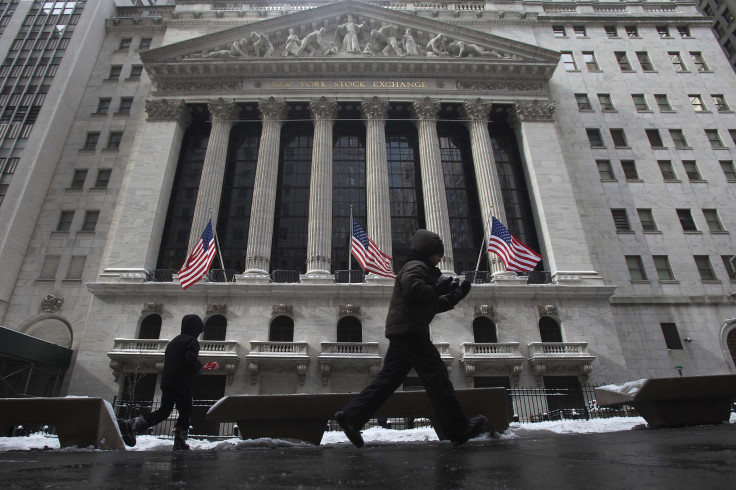Dow Jones Industrial Average Surges 300 Points As Oil Prices Rally 7% To Highest Close Of 2015

U.S. stocks soared Tuesday, with the Dow Jones Industrial Average surging 300 points, after oil prices rallied 7 percent to above $53, the highest close of 2015. Meanwhile, British oil and gas conglomerate BP slashed its capital expenditure spending by 13 percent this year. The move ignited speculation the global glut in oil supply may shrink faster than previously expected.
The Dow Jones Industrial Average, which measures the share prices of 30 large industrial companies, soared 305.30 points, or 1.76 percent, to close at 17,666.34; the S&P 500 stock index added 29.18 points, or 1.44 percent, to end at 2,050.03; and the Nasdaq Composite rose 51.05 points, or 1.09 percent, to finish at 4,727.74.
U.S. oil prices continued to rally Tuesday above $53 a barrel for the third straight session, gaining more than 15 percent since Friday. “It’s a rebound from an oversold condition now that investors realize that these companies have more flexibility. But with that said, I’m not tremendously optimistic about oil prices bouncing back in the near future or in 2015. Back to where they were six months ago is very unlikely,” David Heidel, regional investment director at U.S. Bank Wealth Management.
The futures contract for the U.S. benchmark West Texas Intermediate crude rose 7.5 percent Tuesday, to $53.24 a barrel, for March 15 delivery on the New York Mercantile Exchange. This was WTI's highest closing price in 2015. Meanwhile, Brent crude, the benchmark for global oil prices, rose 6 percent Tuesday, to $58.06 a barrel, for March 15 delivery on the London ICE Futures Exchange.
The rally comes after U.K.-based oil and gas giant BP announced it will slash capital expenditures, or investments, this year by $4 billion to $6 billion to offset lower oil prices. Shares of BP plc (NYSE:BP) rallied more than 3 percent to $41.12 on Tuesday following the report, despite posting a 20 percent plunge in profit last quarter, driven by the recent rout in oil prices.
BP’s results come after Exxon Mobil Corporation, Chevron Corporation, ConocoPhillips and other oil giants also recorded profit declines last quarter due to the more than 40 percent drop in oil prices since June.
When analyzing the series of earnings reports coming from oil and gas companies over the last week, there’s a correlation between valuation and expected production growth, according to Jeff Kravetz, regional investment director at U.S. Bank Wealth Management. “If you announce really sizable cuts to your [capital expenditures], that folds into how much production you expect to be growing as well over the next few years. There are a lot of names that are running cash flow negative in 2015, and those are the ones that will have to cut the most,” Kravetz said.
The energy sector is projected to be the biggest decliner in the S&P 500 this earnings season, as the drop in crude oil prices has forced many energy companies to announce budget cuts to compensate for falling prices.“The larger players probably don’t have to cut capital expenditures as much, but smaller names will have even bigger cuts because they’re not going to have the financial wherewithal to continuing drilling and completing as many wells as they have been,” Kravetz said.
After U.S. financial markets close Tuesday, Walt Disney Co. and fast casual restaurant chain Chipotle Mexican Grill, Inc. are slated to post quarterly results.
Ahead on Wednesday’s economic calendar, economists will be turning their attention to a government report on U.S. oil inventories, which is the amount of oil currently stored for future use. U.S. commercial crude oil inventories rose by 8.9 million barrels from the previous week, the Energy Information Administration said Jan. 28. At 406.7 million barrels, U.S. crude oil inventories have surged to the highest seasonal level in at least 80 years.
© Copyright IBTimes 2024. All rights reserved.





















